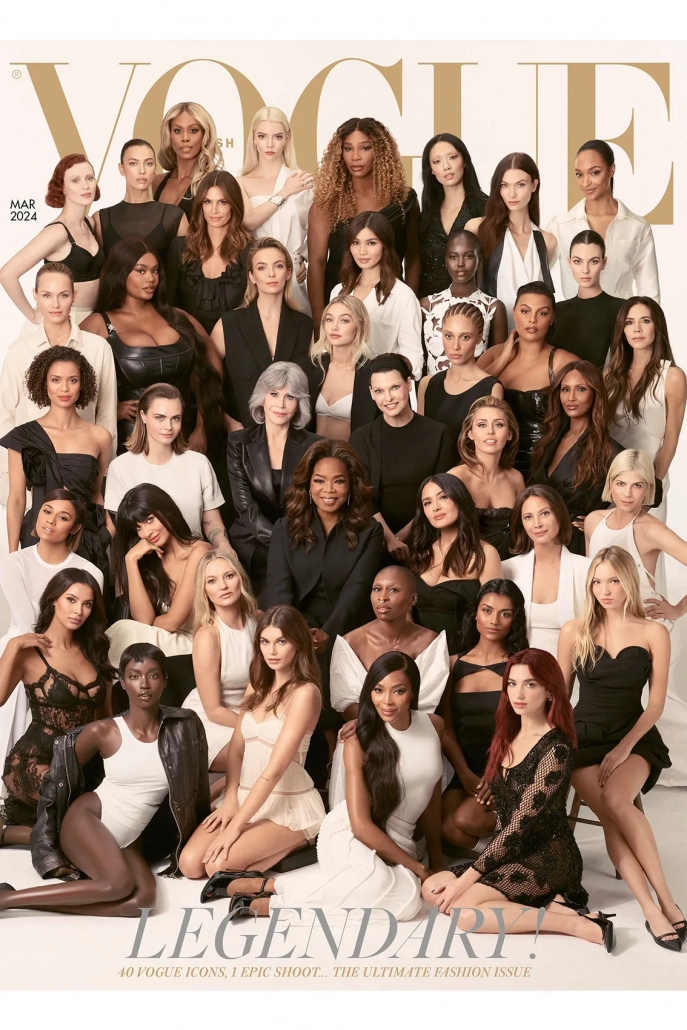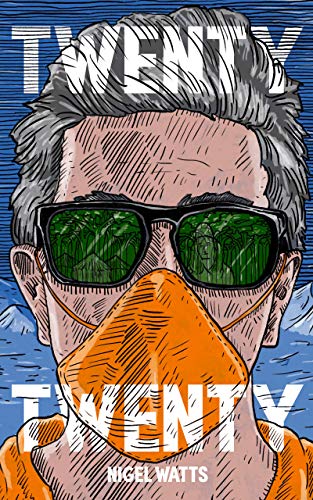Camilla Long’s column in the Sunday Times, ‘Enninful’s big goodbye says his Vogue was never for us’ – Is Wrong

On Sunday, I read Camilla Long’s column in the Sunday Times, entitled, ‘Enninful’s big goodbye says his Vogue was never for us.’ It was interesting to read Long’s perspective, which I believe is one of white privilege and is something that I conclude after a lot of deliberation.
In a nutshell, Long says that under Enninful, British Vogue had lost its way and become empty and that as editor-in-chief, Enninful had failed to do what Vogue was known for, which was to discover new talent of writers, photographers, designers, etc.
Long also references Enninful’s last cover which he created for the March 2024 issue of British Vogue, which is called, ‘Legends Only: 40 Iconic Women’, and says ‘it missed the mark.’ See the photo here, what do you think?!
I re-read Long’s piece, and mulled it over…and it just did not sit with me, so much so that I was compelled to write this post. I believe Enninful had shaken things up at Vogue and put diversity and inclusion at the heart of his vision. There was more modern representation than ever before. More ethnic representation than ever before.
I remember the issue that came out during the pandemic, when everything in the UK was in lockdown and Enninful played a blinder or should I say an ‘equalizer’, by featuring frontline workers on the front cover. For the first time in Vogue history, there were ordinary people on the front of the magazine.
This column by Long misses the point and does not see the difference that Enninful made to women like me, women of colour…the rest of us, who have always stood on the outside looking in…
Representation matters because what we see in the media doesn’t just reflect reality – it also shapes it. On the other hand, positive representation can shift public opinion for the better and create greater understanding and appreciation between cultures and communities.
Contrast this with the photo of the editorial team under the last Vogue editor, Alexandra Shulman, which came under a lot of criticism when it made its way onto social media. There was no representation whatsoever, it was not an inclusive team.
And I shall leave you with this last thought, a Reuters 2021 survey of 100 major UK news outlets found that only 15 percent of the 80 top editors were non-white.

